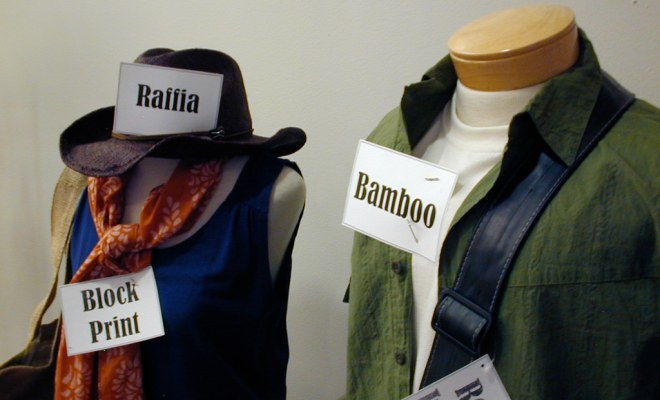Organic clothing is on the rise. Increased consumer concern about environmental sustainability and nature conservation has seen demand grow rapidly for natural and organic fabrics (GVR). Indeed, sales of organic clothing have increased year on year by record highs. Here, we break down 10 reasons why organic clothing should be the choice you should make.
- Use less water
Organic production uses less water. For example, cotton grown organically uses 88% less water than cotton grown using non-organic methods. That equates to an estimated 218 billion liters of water saved every year, the equivalent of filling more than 87,000 Olympic-sized swimming pools. Given that cotton production alone is responsible for 2.6% of global water use, choosing organic clothing is an excellent way to save one of life’s most precious resources (Hoekstra and Chapagain, 2008). Meanwhile, organic hemp uses less than the amount of water required to produce cotton.
- Reduce your environmental footprint
In addition to using less water, there are numerous ways to choose organic clothing to save energy and protect the environment. Fundamental to this is the indisputable fact that organic production doesn’t use pesticides and pesticides. As a result, the production of organic matter, such as cotton and hemp, helps stop soil and water acidification, protects against over-fertilization, and contributes less to global warming. Buying organic cotton and hemp clothing is a surefire way to protect the environment.
- Gentler on your skin
Organic clothing is gentler on your skin. Cotton and hemp are also very breathable fabrics. However, sometimes non-organic cotton and hemp can still cause skin irritation as a result of the tough chemicals used to manufacture the fabric (heavy metals, chlorine and chemical dyes). Since organic clothing is all natural and will not cause allergies, it is an excellent option for people with sensitive skin. Organic cotton is also softer than non-organic cotton because everything is hand-picked which ensures the purity of each fiber picked up, prevents fiber breakage and reduces waste. While organic hemp is gentle on the skin, for a silky feel, organic cotton is king.
- Better for workers
Since organic clothing doesn’t require the use of harsh and toxic chemicals in its production, organic cotton farmers experience healthier working conditions. In addition, the organic materials produced for clothing have diverse social and economic benefits for workers and society. For example, more than 65% of organic producer groups achieve Fairtrade status, 97% encourage women’s participation in production, and more farmers are able to unionize and bargain collectively, helping to increase wages for producers. Therefore, buying organic clothing benefits both the producer and the community.
- Organic clothing is totally biodegradable
One of the advantages of organic clothing is that we can wear it all year round and still feel snug. However, this could mean ours favourite hemp t-shirt or an organic cotton dress worn out beyond repair. Luckily, organic clothing is totally biodegradable so when the day comes when you finally must say goodbye, you will not must worry about adding more waste to the landfill.
- Lack of corporate control over agriculture
The majority of plants grown for clothing originate from transgenic seedsS developed by large agricultural companies. These seeds are developed so that they’re not able to produce their own seeds when planted. Unlike traditional farming, this means farmers cannot produce their own seeds and are dependent on large firms to provide them.
This results in an unequal power dynamic and most of the benefits don’t go to the farmers themselves. In addition, crops derived from GMO seeds are often more prone to disease and drought which puts farmers in a really vulnerable position if the crop fails. When crops are grown organically, it places greater control in the hands of farmers and also encourages sustainable farming practices as they’re able to produce their own seeds.
- This helps preserve valuable natural resources
Apart from reducing water usage, another benefit of organic clothing is that it conserves valuable natural resources. Non-organic farming is intensive and often requires additional agricultural land when soil fertility is lost. Through more sustainable farming practices used in growing organic crops to produce cloth, such as crop rotation and mixed cropping, the soil remains fertile with a balanced nutrient content.
- Organic clothing lasts longer
Clothing produced from organic fabrics lasts longer than clothes you find on the street produced from synthetic materials. No harmful chemicals are used when processing organic fabrics so the fibers in the fabric don’t weaken. So even although the original price label may seem big, remember that with organic clothing you are buying a quality product that will last.
- Fewer synthetic fabrics used
The more we buy organic clothing, the less synthetic fabrics need to be produced and the more the environmental impact of clothing production will be reduced. Many clothing items are produced from non-biodegradable nylon and polyester. In addition to using large amounts of energy and water to manufacture it, the production of nylon releases nitrous oxide (a greenhouse gas) into the environment. Hazardous chemicals used in the production of polyester can even cause contamination of local air and water supplies.
- Shop without guilt
Consumption of cheap, disposable clothing is harmful to the environment and perpetuates the conditions in the sweat factories where it’s usually made. When you buy organic clothing, you can ensure that from seed to shop, the clothing is made in a way that benefits the people who produce it. Clothing will even be produced using sustainable processes that don’t damage the environment. So, if you’re ethically minded, buying organic clothing can be totally guilt-free.
Last word
Organic clothing not only looks good, but has many benefits for producers, the community, the environment and our own mental well-being. If you have not checked the softness of organic cotton or the sturdiness of hemp garments, then now is a good time to try them out.











